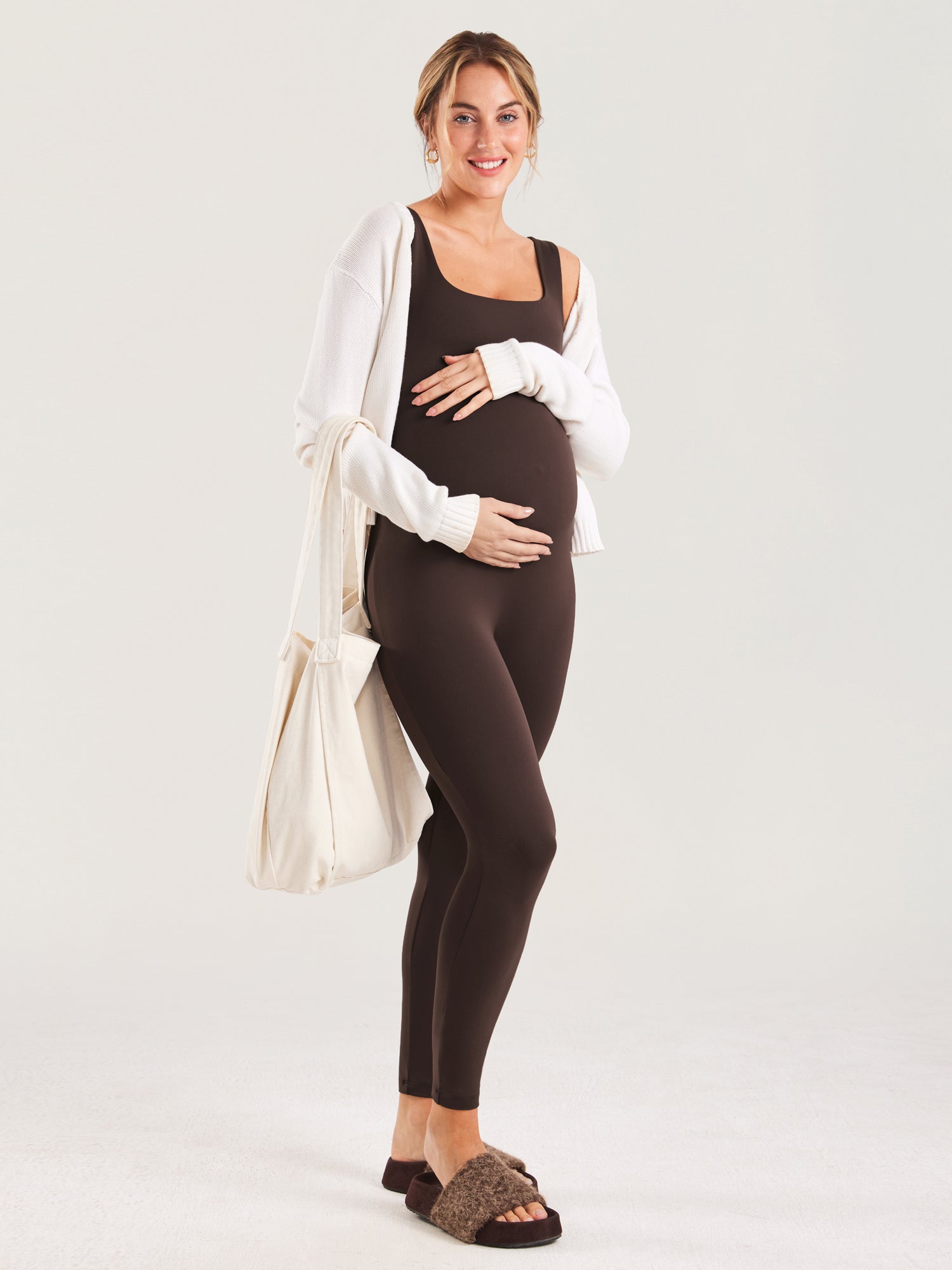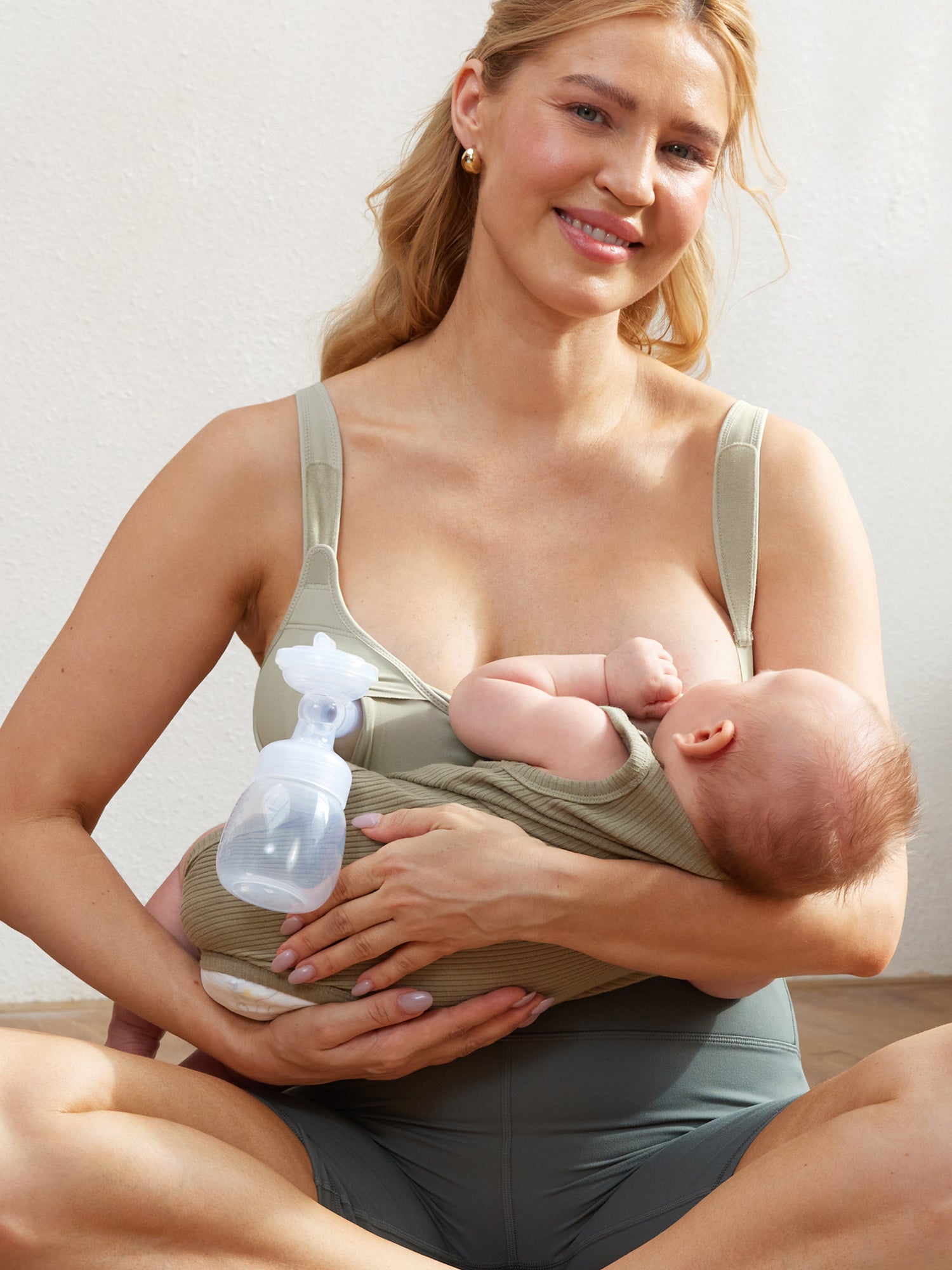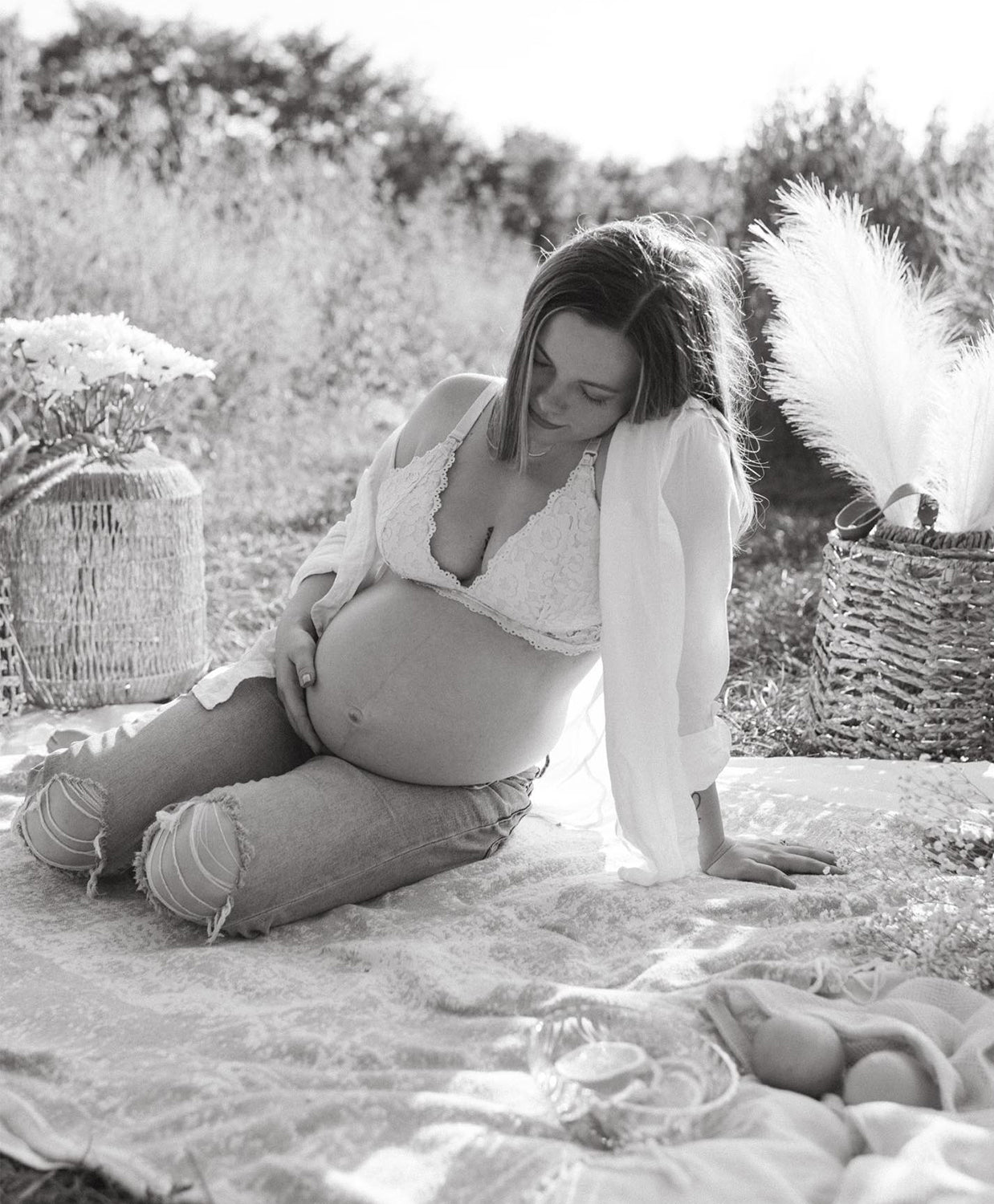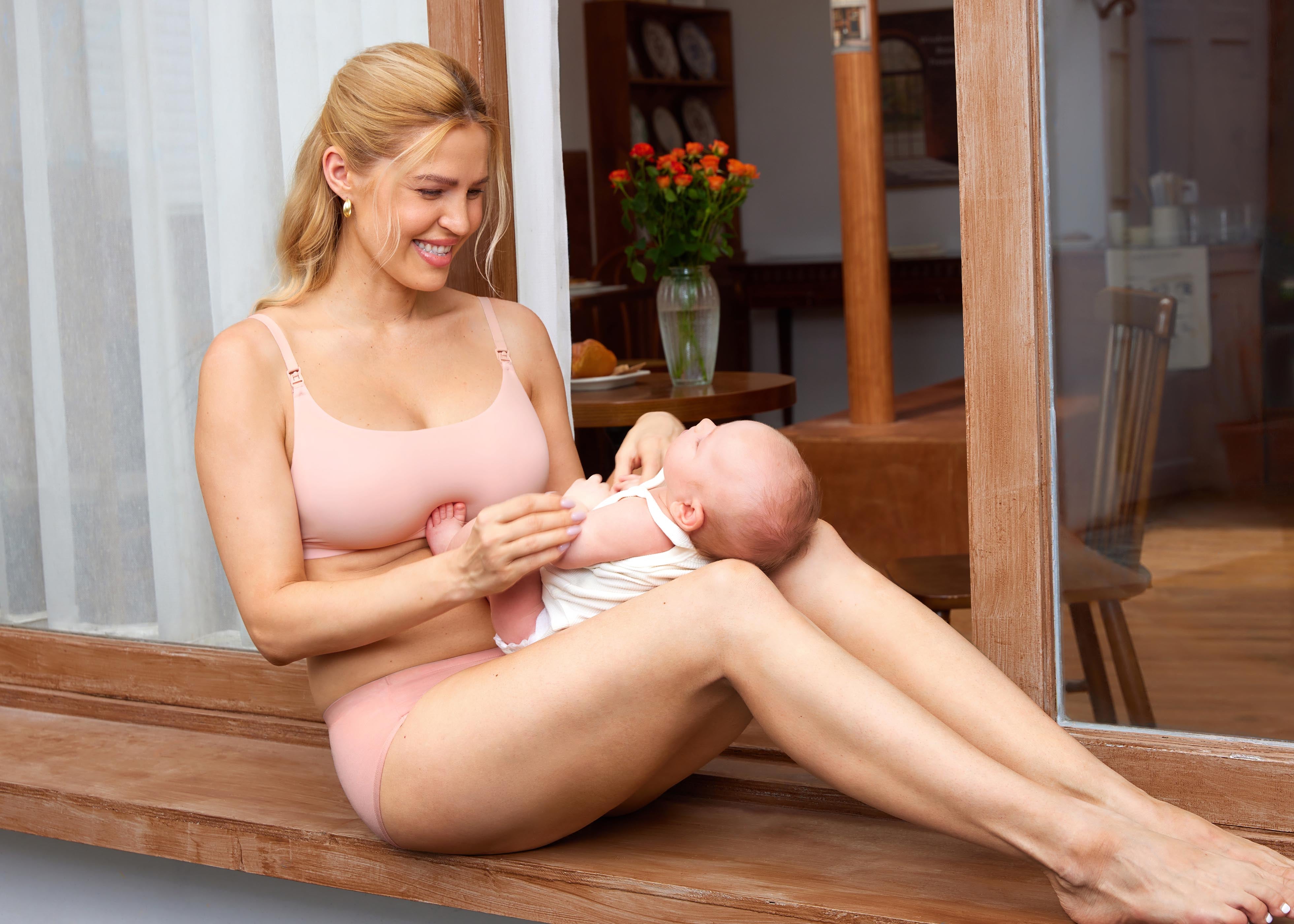Pregnancy Changes For Each Trimester: Everything Explained

Pregnancy is a magical time, after all, you’re growing a tiny human inside you! Of course, you may not be thrilled about your pregnancy hormones introducing a slew of pregnancy symptoms while preparing your body for your baby. You’ll have to brace yourself for the pregnancy changes for each trimester, too.
But, remember that these temporary discomforts will feel worth it at the end when you hold your bundle of joy in your arms. With each passing trimester, you could be in line for a range of symptoms from nausea to flatulence and whatnot. Let's explore how you can expect your body to change, with each trimester.
Pregnancy Changes In the First Trimester
In your first trimester of pregnancy, you may not look visibly pregnant. However, your body is going through some major pregnancy changes, as it preps itself to make room for your growing baby.
The first trimester lasts from the first week to the twelfth week of pregnancy. The first week is calculated starting from the day when you had your last normal menstrual cycle. Conception takes place around the second week, and over the next few days, your hormone levels fluctuate.
Some of the major pregnancy changes in the first trimester take place as your uterus begins to support your growing placenta and fetus. Oxygen and essential nutrients will be carried to the growing baby, and the rate at which your heart beats will also increase.
The risk of miscarriage is significant in your first trimester. Taking prenatal vitamins and avoiding alcohol and other harmful substances, can reduce the risk of a miscarriage, and also help provide relief from pregnancy symptoms.
Some of the big highlights in this trimester, in terms of baby development, include muscle formation, vocal cord development, and the production of white blood cells that help fight infections. Around week 8 or 9, your baby's heartbeat will become stronger, and more regular. You'll even be able to hear it!
Pregnancy Symptoms in the First Trimester
As a result of all these pregnancy changes in the first trimester, you may experience some of the symptoms as noted below.
1. Morning Sickness
Contrary to what its name suggests, you needn't experience it only in the morning. Morning sickness usually begins when you're about six weeks along. You may feel nauseous at particular times of the day, and may even throw up. If the pregnancy symptoms are severe, consult your gynecologist.
2. Mood Swings and Fatigue
By the seventh week of your pregnancy, your fluctuating hormones begin to affect your mood. You may feel super happy one minute, and resort to crying uncontrollably the next! You may also feel super tired, but don't stress, and take plenty of rest.
3. Other Pregnancy Symptoms
While the three most common symptoms have been listed above, you also experience headaches, dizziness, constipation, heartburn, and tender breasts, in your first trimester. Since your baby is still small, you may put on an extra three to four pounds.
Pregnancy Changes in the Second Trimester
For most women, the second trimester is a welcome change! The second trimester starts from about week 14 and continues on till week 27. It is the most comfortable trimester as most of the pregnancy symptoms from the previous trimester will disappear, and your energy levels will begin to peak.
As your uterus begins to grow rapidly, to accommodate your growing baby, you can start flaunting your pregnancy belly! This is a great time to invest in maternity wear. You can buy a cute nursing bra for your beautiful maternity shoot. And break the happy news that you're expecting, to family and friends.
One of the most beautiful pregnancy changes in the second trimester is your adorable baby bump. By the time you're 20 weeks along, you can even feel your baby move. Yes, your little gymnast will start kicking and jabbing!
Baby development really kicks off during the second trimester, and it is believed that your little one can hear and recognize your voice, at this point. You can also find out the sex of your baby during this trimester, should you wish to! Some other exciting changes that your baby goes through are - their eyelids start to blink, capillaries begin to form, and a fully functioning waste system!
Pregnancy Symptoms in the Second Trimester
The pregnancy changes in the second trimester tend to cause the following symptoms.
1. Mild swelling
As per research, around three out of every four pregnant women will experience mild swelling of their feet and ankles, when they're around 22 weeks along. This tends to continue into the third trimester. You can try to deal with your puffy feet and ankles by staying as active as possible, and keeping them elevated when you're resting.
2. Leg Cramps
While pregnancy changes like an increase in hormones and weight gain induce leg cramps, it could also indicate a calcium or magnesium deficiency. So, make sure that you keep eating a well-balanced, healthy diet.
3. Dizziness
Dizziness is another one of the many pregnancy symptoms that you may experience in the second trimester. As your body begins to increase blood flow to your growing baby, your blood vessels expand and relax. This in turn slows down your blood pressure. If you start feeling dizzy, take plenty of rest, eat nutritious food, and stay hydrated.
4. Other Pregnancy Symptoms
As a direct result of the pregnancy changes in the second trimester, you may also experience symptoms like varicose veins, hemorrhoids, backaches, an achy lower abdomen, and nasal congestion.
Your appetite increases or goes back to normal in this trimester, to provide sufficient nutrition to your growing baby. You may gain around 14 to 15 pounds in this trimester, provided that you started your pregnancy at a normal weight.
Pregnancy Changes in the Third Trimester
In the third and final trimester of pregnancy, you may feel like your belly can’t stretch out anymore, but it inevitably will! The third trimester begins when you’re at the 28-week mark, and lasts until your baby arrives in this world, around week 40 of pregnancy.
Labor might start a little later, or earlier than this, but if it doesn’t begin by week 42, your doctor may opt to induce labor. In the third trimester, your doctor will also determine your little one’s position and your cervix, to monitor how your body is preparing for birth.
Pregnancy changes in the third trimester mean that you’ll usually not be allowed to travel on flights or cruise ships. It is recommended that you stay close to your OB-GYN or midwife, in case you go into labor early.
Baby development milestones include the formation of bones, the development of the five senses, and a fully-functioning brain that can regulate body temperature and control dreams!
Pregnancy Symptoms in the Third Trimester
The pregnancy changes in the third trimester may translate into the following symptoms.
1. Diarrhea
In the third trimester, your body is getting all ready for delivery, and some of your muscles start to loosen up. This includes the muscles in your rectum, and this pregnancy change manifests as pre-labor diarrhea. If you still have a couple of weeks till your due date, it could be because of some dietary changes, so, if it persists, contact your doctor.
2. Heartburn or Acid Reflux
One of the pregnancy changes in the third trimester includes your uterus pushing your stomach and its contents upwards. This leads to a persistent burn, called acid reflux and this can be quite uncomfortable. Your doctor may prescribe proton-pump inhibitors or H2 blockers, to alleviate your discomfort.
3. Braxton-Hicks Contractions
You can think of these contractions as a dress rehearsal for childbirth! The closer you get to your due date, the top of your uterine muscles begin to tighten, and this spreads in a downward direction. While the contractions may feel indistinguishable from the real thing, you needn't panic, your body is just preparing for labor.
4. Insomnia
With all the pregnancy symptoms that you experience in the third trimester, like leg cramps, frequent urge to urinate, and general body aches, you may not get a good night's sleep.
It's also quite common - around 75 percent of expectant women experience sleeplessness in the third trimester. Your doctor may prescribe a melatonin supplement if sleeplessness is hampering your day-to-day functioning.
5. Other Pregnancy Symptoms
With all the pregnancy changes in the third trimester, the symptoms are quite endless and vary from person to person. Some other symptoms include fatigue, abdominal achiness, varicose veins, nausea, and leaky breasts.
In the third trimester, baby development is almost complete, which means that though your baby is packing on the pounds, your weight gain begins to slow down. While some women may gain eight to ten pounds in this trimester, others may even lose some weight towards the end of their ninth month.
Final Thoughts
The pregnancy changes for each trimester can vary from person to person. With all these symptoms weighing on you, you may feel super anxious about the arrival of your bundle of joy. But, don't worry in just a few months, you'll have an adorable, babbling baby sleeping away in your arms!

@michellemacht
You've got this, mama!
Samantha Hoare - Jan 08 2022
A Comprehensive Guide to Breast Care During Pregnancy
Mar 30, 2025 SamanthaHoare
How To Prevent Breast Sagging
Mar 30, 2025 SamanthaHoare
What Birthing Classes Should I Take
Mar 19, 2025 SamanthaHoare
When Is The Best Time To Take A Birthing Class?
Mar 19, 2025 SamanthaHoare
What Are The Signs Of Poor Breastfeeding Positions
Mar 16, 2025 SamanthaHoare
7 Most Practical Nursing Positions for New Mothers
Mar 16, 2025 SamanthaHoare
SUBCRIBE FOR NEWSLETTER
Shop today with 10% OFF your first order of all products storewide

























